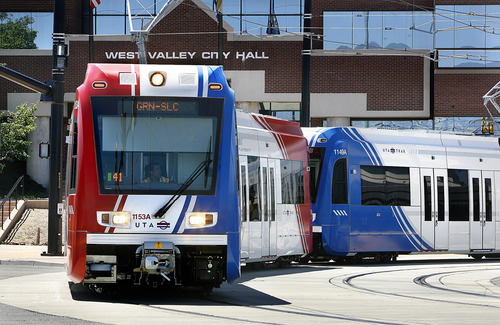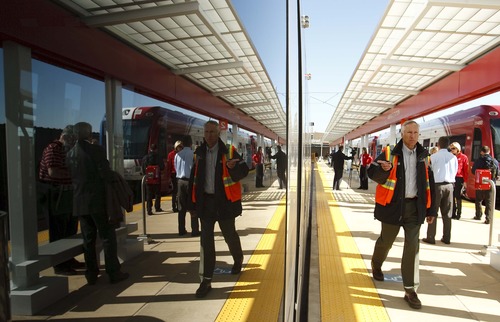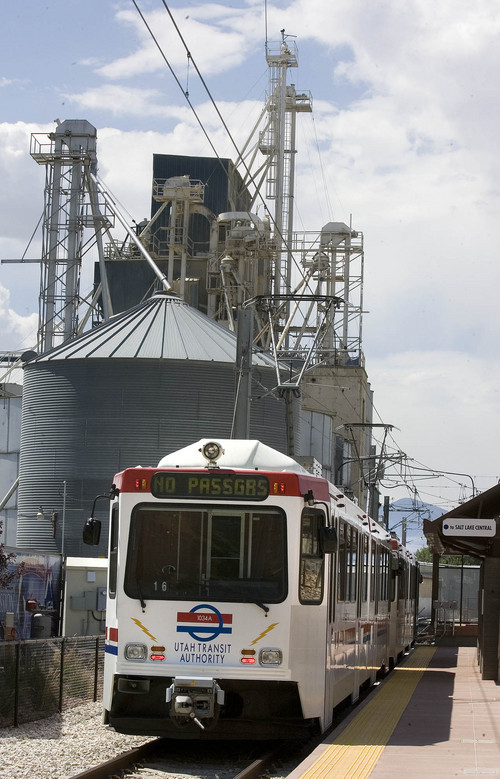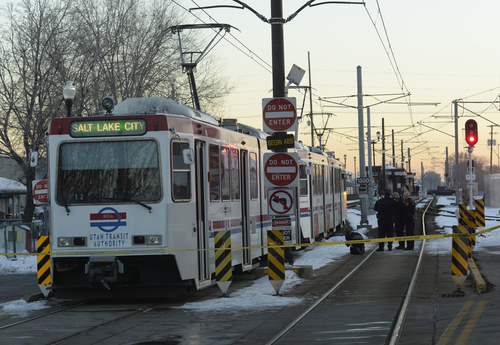This is an archived article that was published on sltrib.com in 2014, and information in the article may be outdated. It is provided only for personal research purposes and may not be reprinted.
Amid lingering controversy over high salaries for Utah Transit Authority executives, the UTA Board voted Wednesday to require that compensation be comparable to pay at similar agencies elsewhere.
Specifically, it approved a new policy that says "total compensation and benefits" must "represent market value for the skills employed within comparable industry labor markets made up of appropriate transit, government and non-profit sectors."
Some state lawmakers and community watchdogs have criticized UTA for paying high compensation and offering bonuses at the same time it has been seeking to persuade legislators to allow a sales tax increase that it says it needed to restore bus service cut during the recession.
The total compensation for some top UTA officials — including salary, bonuses and benefits — is more than $300,000 a year, including bonuses of up to $30,000.
Meanwhile in comparison, Gov. Gary Herbert's total compensation package in 2013 was $151,294, or less than half of some UTA officials with no bonus offered or included.
UTA Chairman Greg Hughes, who is also a Republican legislator from Draper, said in an interview Wednesday, "We want to do it [compensation] right, and we want to really measure the work and the effort and compensate appropriately."
He added, "We think we do that," and said the policy can help assure the public that UTA is working to make pay fair and reasonable.
Hughes said the board already hires a professional compensation analyst every year to compare UTA pay to similar jobs elsewhere. He said that effort plus the new policy "keeps us competitive but also communicates that we understand that we are a transit authority" and must keep pay reasonable. "But I'm also a big believer that you get what you pay for."
Hughes noted UTA just won an award as the top transit agency in America for 2013, and just finished completing 70 miles of rail in five years and it did so ahead of schedule and under budget.
"That just doesn't happen by itself," Hughes said. "You've got to motivate and incentivize and award, and we think we are doing that."
In a somewhat related matter, the UTA Board also voted Wednesday to change the title of UTA General Manager Michael Allegra to president, chief executive officer and general manager.
Hughes said that more accurately describes his varied duties. It could allow the agency to compare Allegra's salary to a wider group of officials at other agencies as his pay is determined annually. In 2013, his total compensation was $364,249 and included a $30,000 bonus.
Among other top UTA compensation in 2013 was $333,217 (with $30,000 bonus) for general counsel Bruce Jones; $262,626 (with $29,918 bonus) for chief operating officer Jerry Benson; and $234,280 ($29,918 bonus) for chief communications officer Andrea Packer.
Of note, the board also recently changed its policies to require that the board itself must vote in a public meeting to approve any bonus greater than $8,000 a year not required by a contract — after controversy over large bonuses at the agency.









